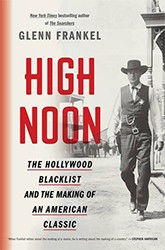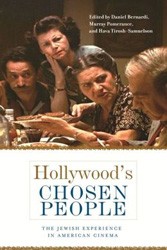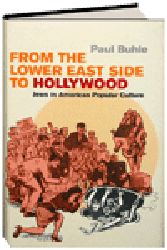In Show Trial, Thomas Doherty applies his talent and insight as a film historian to the story of the Hollywood blacklist, teasing out shades of gray from a topic that has generally been presented in black and white.
The book is divided into three parts. The first section, “Backstories,” presents a clear picture of the labor disputes in Hollywood in the 1930s, setting the stage with color and texture. Part two, “On Location in Washington,” takes us directly into the courtroom and shows us the day-to-day developments during the nine days of hearings and liberal Hollywood’s attempts — all of them unsuccessful — to fight back. The final section, “Backlash,” concerns the aftermath of the hearings, when the movie business was devastated by the hundreds of players who were blacklisted or jailed. A fair number of pages are devoted specifically to antisemitism, an entry with several subcategories in the well-organized index.
Instead of simply retelling the story, Doherty does something much more creative. He provides colorful portraits of a large and varied cast of characters, such as Ayn Rand and Bertolt Brecht, who have never been deeply explored before in this context. Rather than unwinding the story of the blacklist in a traditionally sequential way, he tells it through the individual characters and how it altered their lives. The quotes and anecdotes he offers are invariably amusing and piquant, and we follow them like a trail of breadcrumbs through the narrative.
Doherty also describes how the conflict between national security and freedom of expression was at stake in the notorious and highly publicized House Un-American Activities Committee (HUAC) hearings.
Doherty writes early on that he feels the Hollywood blacklist is an era in film history that is poorly understood and his excitement to explain it all adds a luminous sheen to his narrative. The Hollywood left, in particular, comes to life as we traverse his explanations of the background of the HUAC hearings, held for nine days in October 1947. Through behind-the-scenes reporting, he highlights the ongoing strife between labor and the film studios as the political climate in the U.S. splits them into two opposing camps.
With the fresh material he has unearthed in his expert research, Doherty has created a very entertaining book. He stays true to his theme: how political allegiances, and not talent, became the main determining factor in employment. Doherty not only gives us a new take on history but also deftly ties the conflict to today’s politics.
Linda F. Burghardt is a New York-based journalist and author who has contributed commentary, breaking news, and features to major newspapers across the U.S., in addition to having three non-fiction books published. She writes frequently on Jewish topics and is now serving as Scholar-in-Residence at the Holocaust Memorial & Tolerance Center of Nassau County.





